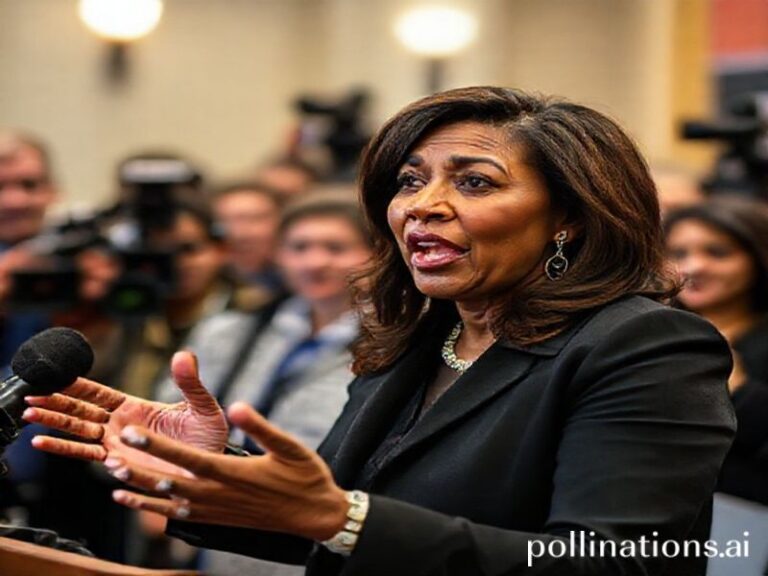NHS League Tables 2025: The World Watches Britain Rank Its Hospitals Like a Reality Show Finale
The NHS League Tables 2025 have dropped, and the world is leaning in like it’s the final episode of a prestige drama where everyone dies of preventable disease. From Seoul to São Paulo, health ministers, policy wonks, and the sort of people who put “disruption” on their LinkedIn are watching the UK’s annual blood-letting with the voyeuristic glee of a Victorian anatomist. After all, if Britain—once the globe’s loudest imperial hospital orderly—can’t keep its own wards open, what hope is there for the rest of us?
For the uninitiated, the league tables rank England’s 42 Integrated Care Systems on everything from cancer wait times to the probability your GP will actually answer the phone before you’ve composed your own eulogy. This year’s headline: North East and North Cumbria have rocketed to the top, presumably by discovering that prescribing coal and stoicism is cheaper than chemotherapy. Meanwhile, Sussex—home of the nation’s most picturesque seafront—has sunk to the bottom, proving that fresh air and artisanal gin cannot, in fact, intubate you.
Globally, the tables function as a moral Rorschach test. In the United States, where hospital billing departments have the lobbying power of small nations, Republicans point to the NHS rankings as proof that “socialized medicine” leads to Soviet-style queues for hip replacements. Democrats counter that at least Brits aren’t GoFundIng their chemotherapy between TikTok dances. Somewhere in Switzerland, health-insurance executives toast their own opacity with gold-leaf Nespresso, relieved that no one is ranking them on how many forms you must fill in before they’ll cover a broken toe.
Singapore, ever the Hermione Granger of public health, has dispatched a delegation to Newcastle to learn the dark art of “system resilience”—translation: how to keep a service running on hope, unpaid overtime, and the ritual sacrifice of junior doctors. Japan, whose citizens live approximately forever, is puzzled that Britain still measures success in “weeks until referral” rather than “centuries of healthy life.” They have politely offered to fax over some advice, but the NHS fax machine was pawned in 2019.
The real geopolitical subplot is workforce flight. Australian recruiters, armed with sunshine and salaries that don’t require moonlighting at Pret, are trawling the bottom quartile trusts like cheerful undertakers. One Melbourne billboard simply reads: “Hey, junior docs—come where your overtime buys actual avocados.” Canada, not to be outdone, is offering free maple-scented visas to any nurse who can pronounce “about” correctly and endure passive-aggression at sub-Arctic temperatures.
But the cruellest joke is on the UK’s former colonies. Kenya’s health minister, whose own system runs on donor fatigue and WhatsApp prayers, admitted to “benchmarking” against the NHS. Yes, the same NHS now rationing crutches. When your role model starts crowdfunding insulin, it might be time to update the vision board.
Economists predict the rankings will accelerate a phenomenon known as “medical nationalism,” where countries hoard doctors the way dragons hoard gold. Germany, already stockpiling anaesthetists like bratwurst, has begun offering free lederhosen with every contract. France, never subtle, has promised 35-hour weeks, croissants, and the right to look disdainful at American tourists. The NHS counters with a commemorative tea towel and the chance to be applauded by strangers who voted to cut your pension.
Yet beneath the gallows humour lies a universal truth: every nation is one austerity budget away from its own league-table humiliation. The WHO, ever diplomatic, has warned that comparing health systems by spreadsheet is like ranking marriages by argument duration—technically possible, spiritually ruinous. Still, we watch, we tweet, we pretend the numbers don’t spell out “morbidity” in bold Comic Sans.
In the end, the 2025 NHS league tables are less a report card and more a mirror held up to a planet ageing gracelessly, rationing compassion like it’s 1945. Until we decide that health is infrastructure rather than ideology, we’ll keep shuffling the deck chairs on the Titanic—only now the chairs come with a 52-week waiting list.







